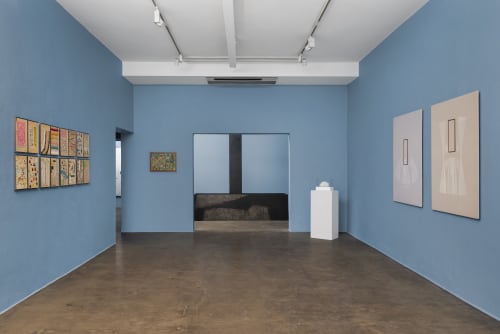Structured as a visual thought experiment as an exhibition in two parts: towards abstraction (part I) and towards portraiture (part II), Unedited, Like an Afternoon Dream explores a philosophy of the image following the relationship between representation and truth, reality and human consciousness. For centuries, philosophers have argued passionately and variously about how we sense, perceive and cognize images, and the role they play in binding us to faculties of the imagination as much as truth itself. In critical practice, the conceptual categories of abstraction and portraiture are two different approaches to narrative storytelling – looking in and looking out, respectively – carrying different weights of emotion, technique and meaning in the rendering of images, distinguishing how they can be both read and felt by viewers. Where abstraction offers access to personal myths and reflections, guiding our recognition deeper within, portraiture acts as a depiction of likeness as much as a conjurer of memory, relying on symbolism to coax us back into the larger world. Though not without nuances, the artistic image offers a more conventional understanding of representation that invites, as we explore, a deeper contemplation on the mental image as thought and feeling that foregrounds human cognition – or what connects us to ourselves, to others and the world.














